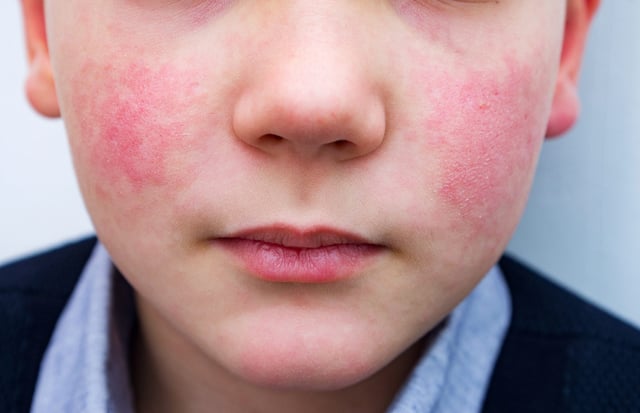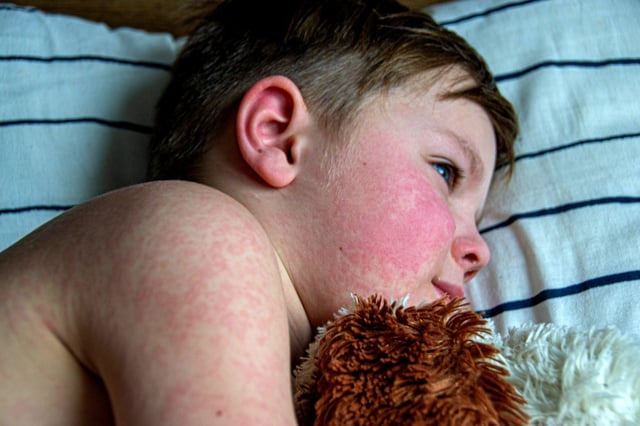Overview
- Parvovirus B19 spreads through respiratory droplets and close personal contact.
- Symptoms include fever, muscle pain, and a distinctive rash on the cheeks.
- Most adults have immunity, but pregnant women and immunocompromised individuals are at higher risk.
- The virus can lead to severe anemia in fetuses and complications for those with chronic blood disorders.
- No vaccine exists; preventive measures include hand-washing and avoiding contact with infected individuals.

